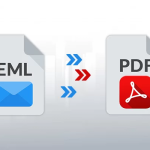In the dynamic landscape of business, certifications serve as badges of excellence, signaling to clients, partners, and competitors that a company is committed to the highest standards. This blog explores the significance of various business certifications, shedding light on why these credentials are crucial for success in today’s competitive market.
ISO Certification: A Pillar of Quality Assurance
At the forefront of business certifications stands the ISO (International Organization for Standardization) certification. This globally recognized standard, particularly the ISO 9001 for quality management, is a cornerstone for businesses committed to delivering consistent and high-quality products or services. Achieving ISO certification involves rigorous processes, from detailed documentation of quality management systems to regular audits ensuring compliance. Beyond being a mark of distinction, ISO certification in stills a culture of continuous improvement within organizations, fostering efficiency, customer satisfaction, and a competitive edge in the marketplace.
Six Sigma Certification: Driving Efficiency and Process Excellence
For organizations aiming to streamline operations and eliminate defects, Six Sigma certification is a game-changer. Rooted in data-driven decision-making and process improvement methodologies, Six Sigma helps businesses enhance efficiency and customer satisfaction. The certification process typically involves belt levels, from Yellow to Green and Black, each signifying a varying degree of expertise. With a focus on reducing variation and enhancing overall quality, Six Sigma certification empowers businesses to optimize processes, minimize errors, and maximize operational excellence.
Project Management Professional (PMP): Navigating Successful Project Delivery
In the realm of project management, the Project Management Professional (PMP) certification is a gold standard. Recognized globally, PMP certification signifies a project manager’s competency, skills, and ability to lead projects to successful completion. The certification process involves rigorous training, examination, and demonstration of practical project management experience. PMP-certified professionals bring a structured and disciplined approach to project execution, ensuring adherence to timelines, budgets, and quality standards. In a business landscape where effective project management is synonymous with success, PMP certification is a valuable asset.
Certified Information Systems Security Professional (CISSP): Safeguarding Digital Assets
In the age of digital transformation, cybersecurity is paramount. The Certified Information Systems Security Professional (CISSP) certification is a testament to an individual’s expertise in designing, implementing, and managing a robust cybersecurity program. CISSP covers a spectrum of security domains, from asset security to security and risk management, making it a comprehensive certification for information security professionals. As businesses increasingly rely on digital platforms and data, CISSP-certified experts play a crucial role in safeguarding sensitive information, mitigating cyber threats, and ensuring the resilience of a company’s digital infrastructure.
Certification in Risk Management Assurance (CRMA): Mitigating Business Risks
Businesses face a myriad of risks, from financial uncertainties to regulatory compliance challenges. The Certification in Risk Management Assurance (CRMA) equips professionals with the knowledge and skills to navigate and mitigate risks effectively. This certification is particularly valuable for internal auditors and risk management professionals. CRMA certification covers risk management principles, governance, assurance processes, and provides a framework for identifying and managing risks in various business functions. In a landscape where uncertainty is inevitable, CRMA certification empowers businesses to proactively identify, assess, and manage risks, safeguarding long-term sustainability.
Certified ScrumMaster (CSM): Embracing Agile Project Management
Agile methodologies have become synonymous with adaptability and responsiveness in project management. The Certified ScrumMaster (CSM) certification is a key credential for professionals involved in Agile and Scrum practices. CSM certification signifies an understanding of Scrum principles, the ability to facilitate Agile teams, and a commitment to continuous improvement. In a business environment where agility is a competitive advantage, CSM-certified professionals contribute to faster project delivery, enhanced collaboration, and a culture of adaptability that aligns with the dynamic needs of the market.
Leadership in Energy and Environmental Design (LEED): Championing Sustainability
In an era where environmental responsibility is integral to corporate identity, the Leadership in Energy and Environmental Design (LEED) certification is a testament to a business’s commitment to sustainable practices. LEED certification applies to buildings and spaces, evaluating their environmental performance and impact. Achieving LEED certification involves meeting stringent criteria related to energy efficiency, water conservation, materials selection, and indoor environmental quality. Businesses with LEED-certified facilities demonstrate a dedication to minimizing their environmental footprint, contributing to a healthier planet, and meeting the expectations of environmentally conscious consumers.
Certified Ethical Hacker (CEH): Fortifying Cybersecurity Defenses
As cyber threats continue to evolve, businesses require professionals equipped to anticipate and counteract these challenges. The Certified Ethical Hacker (CEH) certification is designed for individuals who aim to understand the mindset of hackers to fortify cybersecurity defenses. CEH-certified professionals possess skills in ethical hacking, penetration testing, and vulnerability assessment. By simulating real-world cyberattacks, CEH certification ensures that businesses can identify and address vulnerabilities before malicious actors exploit them. In the ongoing battle against cyber threats, CEH-certified experts play a crucial role in maintaining the integrity and security of digital assets.
ISO 14001 Certification: Environmental Stewardship in Business Operations
Environmental responsibility is no longer an option but a necessity for businesses operating in the 21st century. ISO 14001 Certification, specifically tailored for environmental management systems, is a crucial credential for organizations committed to sustainable practices. This certification establishes a framework for businesses to identify, manage, and mitigate the environmental impacts of their operations. From reducing carbon footprints to optimizing resource usage, ISO 14001 certification aligns businesses with global environmental standards. Embracing this certification not only positions companies as responsible corporate citizens but also opens doors to partnerships with eco-conscious consumers and investors who prioritize sustainability in their decision-making.
Certified Diversity and Inclusion Professional (CDIP): Fostering an Inclusive Workplace Culture
In the era of diversity and inclusion, fostering a workplace culture that values and celebrates differences is imperative for business success. The Certified Diversity and Inclusion Professional (CDIP) certification is designed for HR professionals, leaders, and change agents dedicated to building inclusive environments. CDIP certification goes beyond token gestures, providing a comprehensive understanding of diversity issues, inclusive leadership, and strategies for creating a workplace that embraces diversity in all its forms. Businesses that invest in CDIP-certified professionals not only cultivate a more engaged and innovative workforce but also enhance their reputation as champions of diversity and inclusion in the competitive marketplace.
Conclusion: Investing in Excellence through Certification
In conclusion, business certifications serve as powerful instruments for organizations and professionals committed to excellence. Whether in quality management, project delivery, cybersecurity, risk mitigation, sustainability, or agile practices, certifications provide a structured path to mastery and recognition. The why behind the wow of certifications lies in the tangible benefits they bring – from enhanced operational efficiency and customer satisfaction to a competitive edge in the market. As businesses navigate the complexities of the modern world, investing in certifications becomes not just a choice but a strategic imperative for sustained success and growth.


